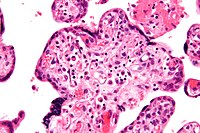
Predicting healthcare outcomes in prematurely born infants using cluster analysis
Sign Up to like & getrecommendations! Published in 2018 at "Pediatric Pulmonology"
DOI: 10.1002/ppul.24050
Abstract: Prematurely born infants are at high risk of respiratory morbidity following neonatal unit discharge, though prediction of outcomes is challenging. We have tested the hypothesis that cluster analysis would identify discrete groups of prematurely born… read more here.
Keywords: born infants; prematurely born; predicting healthcare; cluster analysis ... See more keywords

Work of breathing during HHHFNC and synchronised NIPPV following extubation
Sign Up to like & getrecommendations! Published in 2018 at "European Journal of Pediatrics"
DOI: 10.1007/s00431-018-3254-3
Abstract: Our aim was to compare the work of breathing (WOB) during synchronised nasal intermittent positive pressure ventilation (SNIPPV) and heated humidified high flow nasal cannula (HHHFNC) when used as post-extubation support in preterm infants. A… read more here.
Keywords: prematurely born; range; work breathing; extubation ... See more keywords

The influence of perinatal and maternal factors on physical growth at 12 months in prematurely born infants treated in the neonatal intensive care unit: A retrospective chart review and a prospective cohort study.
Sign Up to like & getrecommendations! Published in 2020 at "International journal of nursing studies"
DOI: 10.1016/j.ijnurstu.2020.103656
Abstract: BACKGROUND Growth retardation during the first year of life is frequently observed in prematurely born infants. Few reports have considered the effects of maternal emotional distress and perceptions of care burden on the outcomes of… read more here.
Keywords: prematurely born; physical growth; study; born infants ... See more keywords

Body Posture Asymmetry in Prematurely Born Children at Six Years of Age
Sign Up to like & getrecommendations! Published in 2017 at "BioMed Research International"
DOI: 10.1155/2017/9302520
Abstract: Aims The purpose of the study was to assess body posture asymmetries in the standing and sitting position in prematurely born children at six years of age. Study Design and Subjects We measured trunk symmetry… read more here.
Keywords: body posture; age; prematurely born; born children ... See more keywords

Adaptive Cognitive Control in Prematurely Born Children: An HD-EEG Investigation
Sign Up to like & getrecommendations! Published in 2022 at "Brain Sciences"
DOI: 10.3390/brainsci12081074
Abstract: Preterm birth is a neurodevelopmental risk condition often associated with cognitive control (CC) impairment. Recent evidence showed that CC can be implicitly adapted through associative learning. In the present study we investigated the ability to… read more here.
Keywords: adaptive cognitive; cognitive control; control; age ... See more keywords